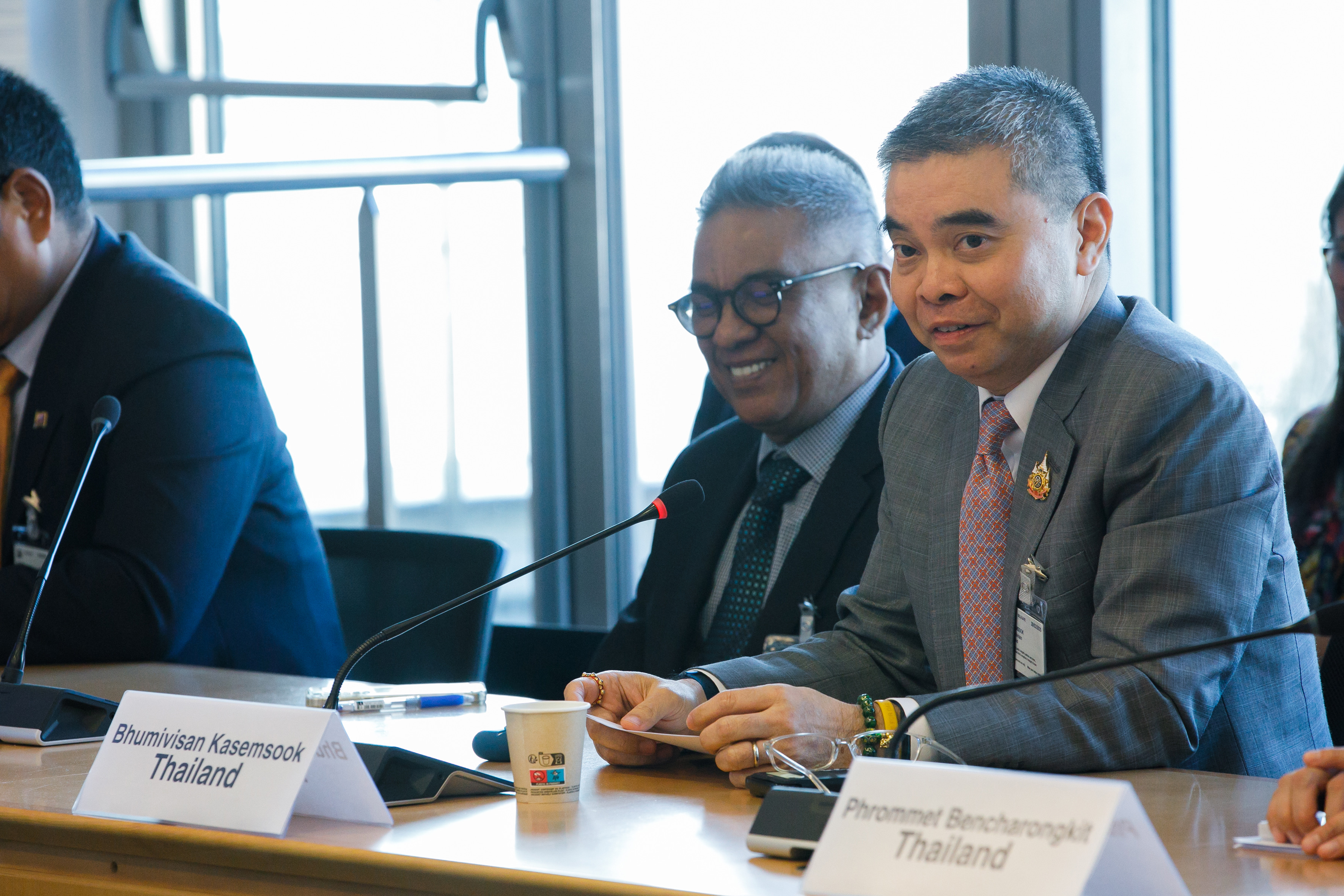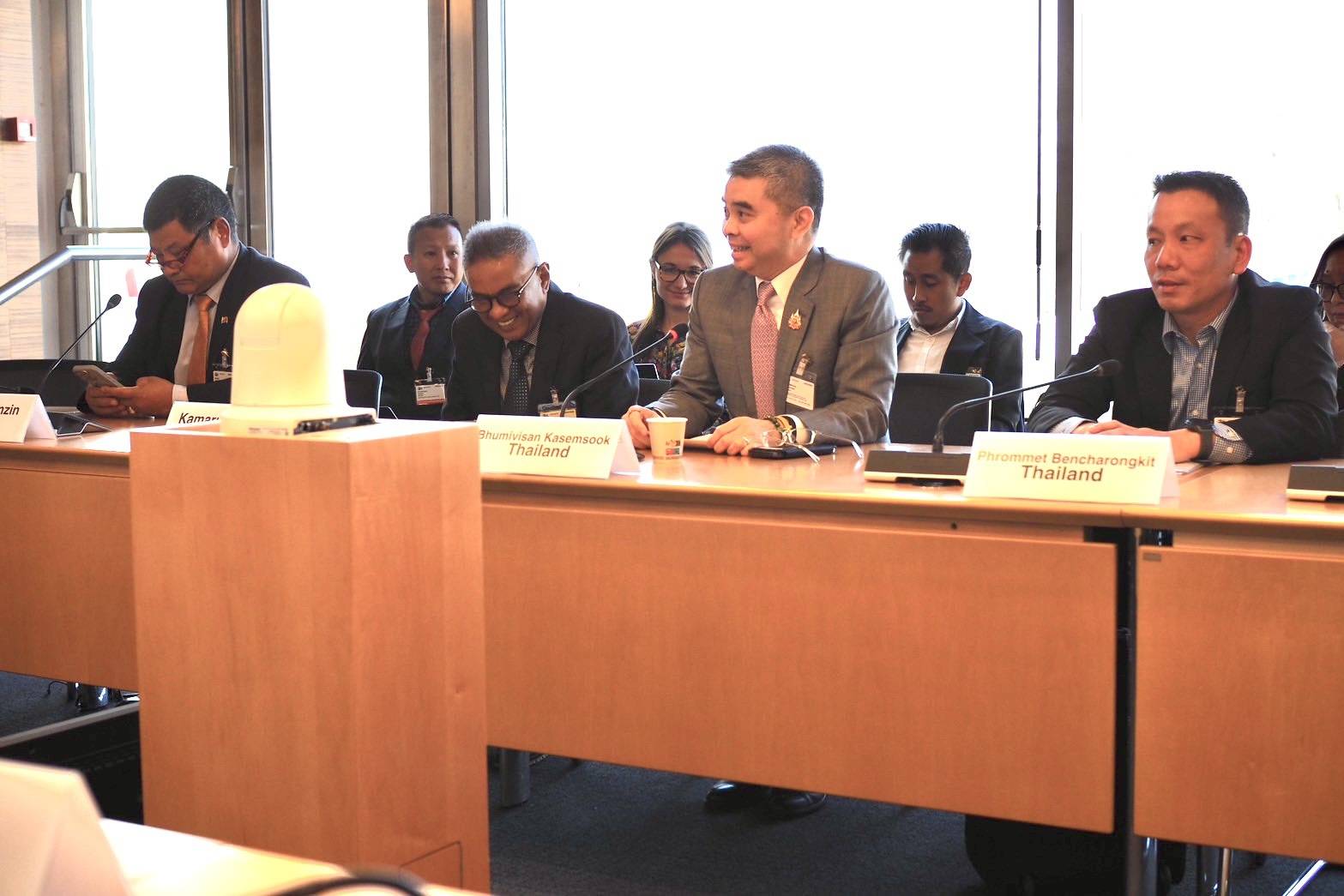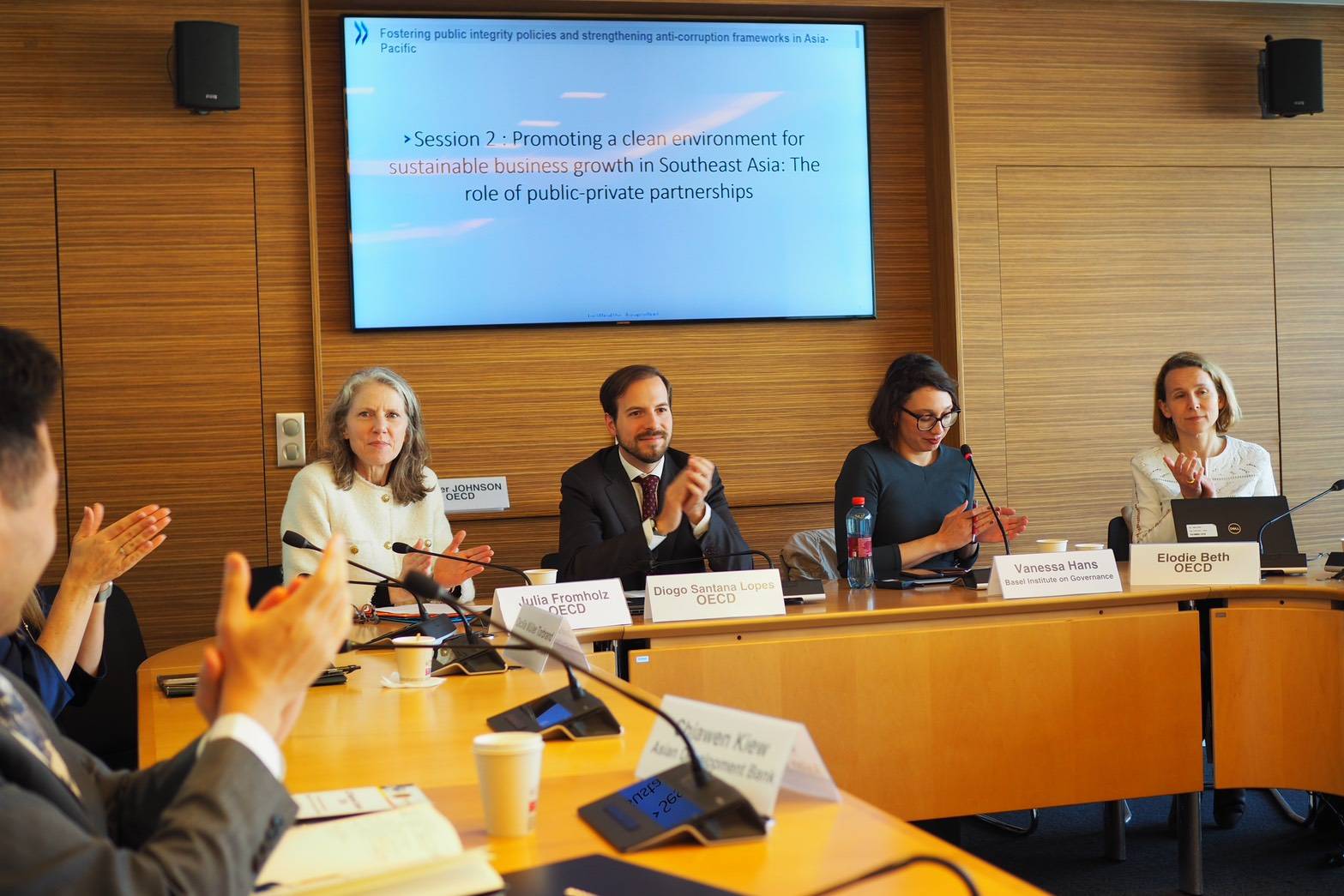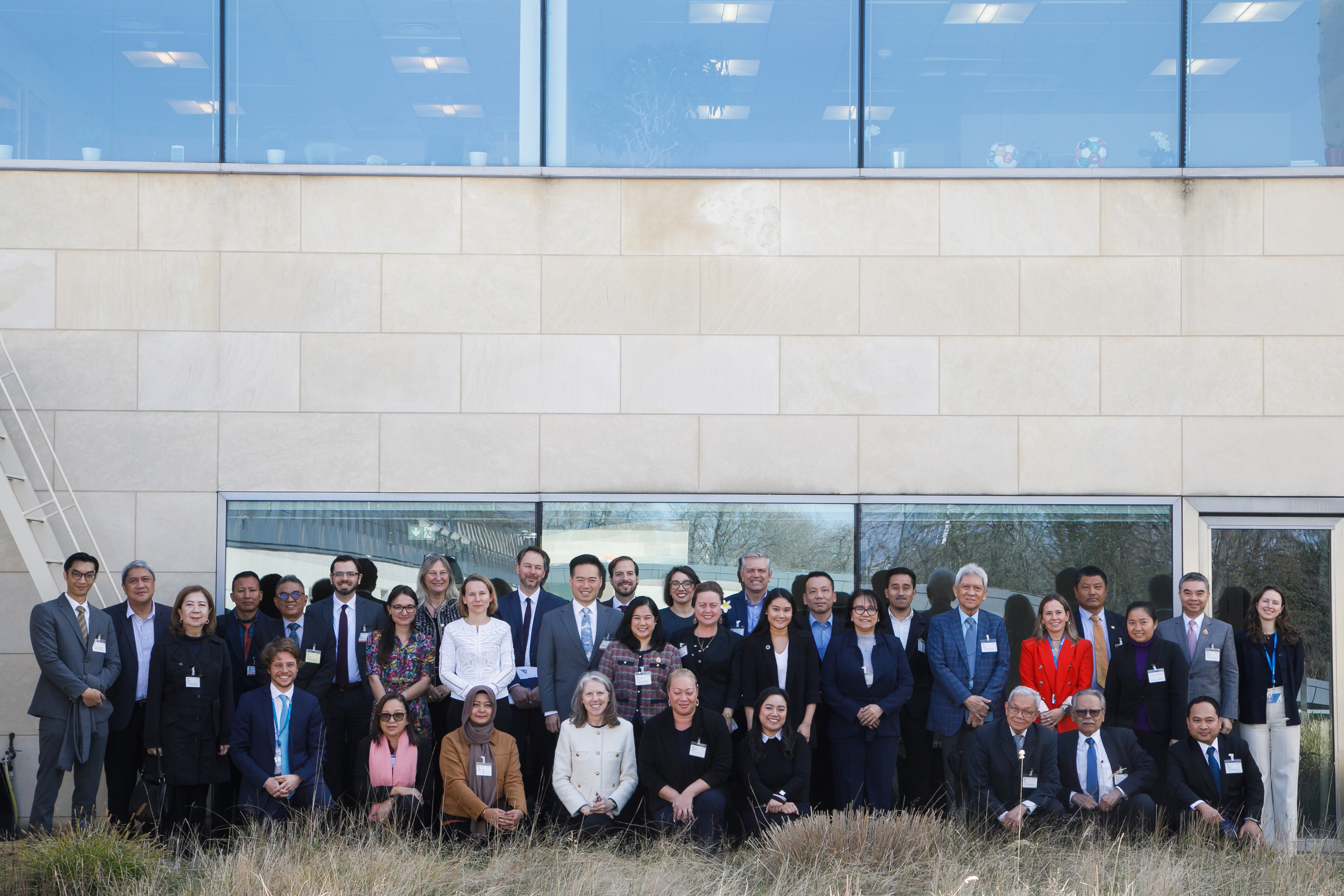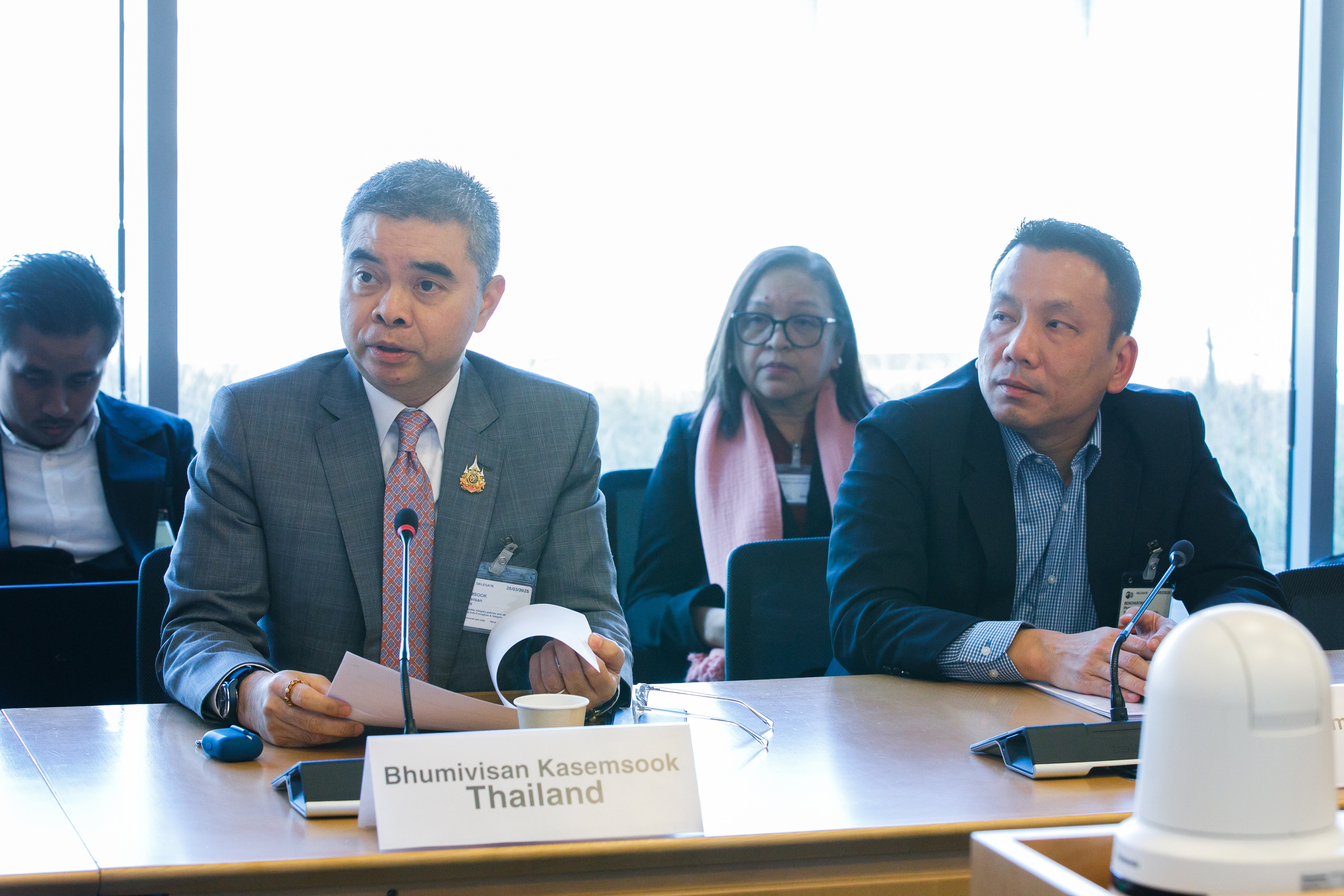
PACC officials participated in the meeting “Fostering Public Integrity Policies and Strengthening Anti-Corruption Frameworks in Asia-Pacific”, Paris, France.
1 April 2025
On March 27, 2025, Mr. Bhumivisan Kasemsook, Secretary-General of Public Sector Anti-Corruption Commission (PACC) and official, participated in the meeting “Fostering Public Integrity Policies and Strengthening Anti-Corruption Frameworks in Asia-Pacific.” This meeting was held as part of the 2025 OECD Global Anti-Corruption and Integrity Forum at Conference Room CC20, OECD Headquarters, Paris, France. On this occasion, the Secretary-General of PACC was honored to deliver the Closing Remarks for the meeting. The key message emphasized Thailand’s commitment to preventing and combating corruption over the past 17 years. He highlighted the focus on developing personnel and working mechanisms to align with the evolving technological landscape, enhancing the efficiency of work to better address increasingly complex corruption cases. Recently, the PACC was assigned as the main agency, along with the Office of the Public Sector Development Commission, to be responsible for working within the frameworks of the OECD Public Integrity Indicators under the direction of the Public Governance Committee. This is part of the accession process for becoming a member of the OECD.
Furthermore, he stated that in addressing corruption issues in the public sector, the PACC has worked on enhancing and improving the Act on Executive Measures for Anti-Corruption, B.E. 2551 (2008) and its amendments, which has been approved by the Cabinet and officially published in the Royal Gazette on February 18, 2025. Today, the following Act has granted the PACC additional authority. First, the PACC can now take action on misconduct, which covers actions or inactions that violate laws, rules, or regulations in the duties of public officials. The PACC has the authority to pursue both disciplinary and criminal actions against officials without needing to wait for assignment from other agencies. Second, the law establishes a clear and concise timeline for pursuing disciplinary action. The responsible authority must impose penalties based on the offenses determined by the PACC committee within 60 days. Failure to do so without a valid reason will be considered a disciplinary violation. This change as an alignment with OECD Public Integrity standards, particularly in the efficient and swift application of disciplinary measures. It strengthens accountability in pursuing disciplinary actions by supervisors and establishes clear penalties to prevent inaction in the duties of public officials in the future. The PACC will urgently prepare evaluations and disciplinary measures, closely monitor their implementation, and enhance the capacity of supervisors in handling disciplinary actions. Additionally, the PACC will expand both domestic and international cooperation to elevate standards in accordance with OECD guidelines and support Thailand’s accession to OECD membership.
Gallery
